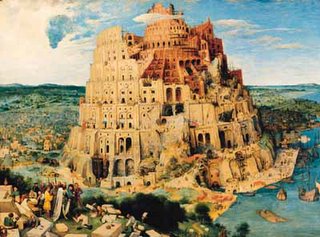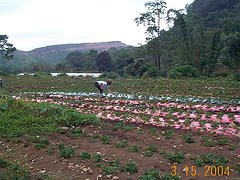 Most of us are quite familiar with the enticing allures that the geography of Cebu has proudly laid out for the many visitors, both domestic and foreign, who troop to the island.
Most of us are quite familiar with the enticing allures that the geography of Cebu has proudly laid out for the many visitors, both domestic and foreign, who troop to the island. A strip-lean island, surrounded in most of its long and still enviable coast lines by one of nature's most fascinating wonders, the living, breathing and growing structures humankind loves to explore and gaze at, the coral reefs.
A fly-over on the tiny island strip, charted on a north to south orientation, will readily reveal how these coral reefs have encircled the entire island in a tight embrace. Easily distinguishable by its whitened outlines, hemmed in by landmass on one side and the dark-green deep on the other. Giving Cebu a much stouter outline than the land-bound observer would normally discover.
The old native residents of the place call the place Sugbu and the residents, Sugbuanons, which loosely translated mean "to wade through" and "those who waded through". Obviously describing how people got to the island, by wading through non-navigable and shallow portions of the foreshores and beyond.
But apart from the sea level or below sea-level natural wonders of the place, I soon discovered another physical wonder way up from the low-lying land and consorting with the low-flying clouds. These are the ruggedly steep, high and jagged, mountains as one travels across from east to west. From Cebu City to the City of Toledo, and specifically to the town of Lutupan, site of the defunct mining company, Atlas Copper Mining Corporation.
Words cannot amply describe both the beauty, the jagged peaks, and the possible perils that these ominous mountains hold for the many wary travelers.
As one ambles up from the flat areas of Cebu City and approaches the mountain ranges that provide natural delineations between the west and east, a stretch of about 20 kilometers is the timid and fearful traveler's answer to what it must feel like negotiating the most winding and treacherous mountains of the Himalayas if roads were built all the way to their tops.
Suffice it to say that that stretch is called Manipis, which translated means very thin or skinny. Which, applied to the road, means very narrow and winding. Very apt description given by old travelers who used to work in the mines. Now the road has been widened a bit, but still too narrow for comfort and safety. After all, a vehicle has to stop at many points along the way since some stretches do not have enough road space to allow traffic to pass each other.
One's deep fears of heights and of falling are generously heightened and exposed in the many hairpin turns that dot that perilous stretch. Laying bare gaping and steep chasms that stretch all the way down to the bottom of the mountains, at times maybe thousands of meters down. Sheer drops that make grotesquely unimaginable the catastrophic consequences of vehicles free-falling all the way to the bottom. Sheer drops with only a few feet of God's earth protecting and supporting the mindless vehicles negotiating through them.
Time seems to stand still as one's vehicle snakes through them, cautiously taking each dangerous turn with white bare knuckles and rapidly pulsating hearts.
In the end, however, the trip ends without any untoward incident and appears well worth it, experiencing in the process some novel pleasures interspersed with great fears and anticipation.
The entire mine complex, which used to be a thriving and throbbing hub of frenetic activities, appears now quite decrepit and mute. If I remember correctly, Atlas used to be the No. 1 copper producer in the world, supplying a good percentage of the world's demands. But the general declines of metal prices during the 90s took a grave toll, so much so that in that same decade, the mine, which had operated pre-WWII, had to close and lay off most of its operating personnel. Now only a couple of hundreds are left to secure the huge place and to do some basic regular maintenance chores.
The good news is that various talks are afoot for the re-opening of the mine under new ownership, with possible financial and operational participation of foreign investors. The prognosis is very good because metal prices are again riding on record-high crests, and there appear no ready suppliers around the world to fill in the slack in the renewed demands for copper.
This will be a very welcomed development for an island that has traditionally prided itself as the gateway to the south. But which of late has slyly referred to itself in tourist brochures tersely as simply an island in the Pacific, with the obvious snub of and dis-association from the rest of the island archipelago now mired in deep social and political problems; and getting very negative press in the rest of the world.
Not a very ideal situation in the island's drive to attract more tourists, and garner more revenues for its development projects.



















